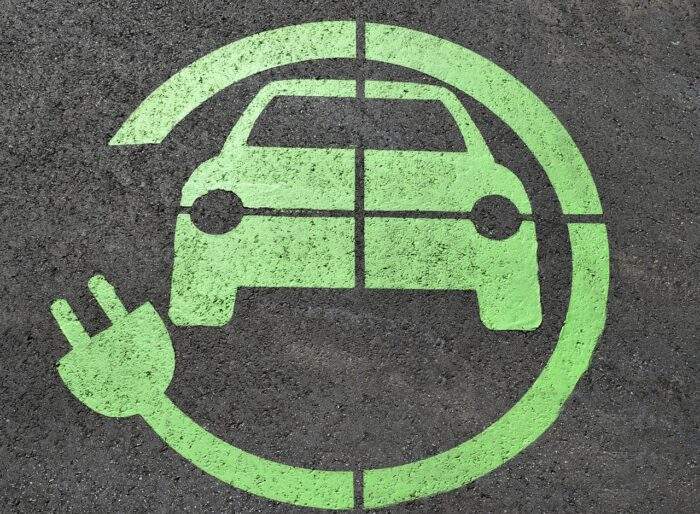Future-Proofing Your Business With Advanced EV Charging Management Solutions

EVs aren’t a futuristic dream anymore—they’re here. And with them comes the need for charging infrastructure to support the vehicles. Managing EV charging with software reduces customer wait times, improves operations, and boosts revenue. Here’s how EV management software automates data entry and monthly reporting for your team, freeing them up to focus on other tasks.
Enhanced Customer Experience
EV charging stations provide a valuable service to EV drivers and contribute to the overall customer experience. A high-quality management system can enhance the experience for both end customers and charging station operators. These systems enable advanced capabilities like remote real-time monitoring, streamlined maintenance alerts, and advanced payment capabilities. Additionally, smart EV charging solutions can be integrated with renewable energy sources to provide sustainable, clean, and affordable power for EVs. It promotes energy efficiency and reduces dependence on fossil fuels while improving the environment and local economy. Buildings with EV chargers attract eco-conscious buyers and tenants, increasing their marketability and value. They also help to address range anxiety and ease the transition to an all-electric lifestyle.
Businesses can ensure their EV charging infrastructure is future-proof by choosing hardware and software that complies with the OCPP 2.0.1 standard. OCPP 2.0 certification unlocks improved transaction handling and additional smart charging functionalities and makes the system eligible for government funding programs. A unified platform provides visibility into communication between the car and charger in granular detail, allowing network operators to quickly identify potential issues that may arise — preventing downtime, saving resources, and avoiding costly customer churn.
Scalability
A key to successful EV charging is a network of infrastructure that can support the rapid growth of EV driver demand. With the right management software, property owners can ensure that their EV charging solution can grow with demand while maintaining high-quality performance and reliability. EV charging management solutions that offer a single, comprehensive platform for monitoring and managing hardware/energy distribution systems, services, and payment methods across multiple sites or networks can help businesses improve efficiency and reduce costs by streamlining a complex charging process. They can also enable automated invoicing and payment processing to eliminate manual processes and maximize revenue potential. Regarding EV charging, having the right technology can make all the difference in a great customer experience. For example, EV drivers expect fast and reliable charging speeds so they can enjoy more time on the road with their electric vehicles.
Moreover, a suitable EV charging solution provides access to a wide range of chargers in a single network, giving customers more options to charge their vehicles. It can also help ease range anxiety concerns as they no longer have to worry about being out of battery. The right EV charging management system will monitor a site’s chargers, connectors, and sessions while providing quick remote troubleshooting to address any issues that may arise.
Energy Efficiency
An EV battery’s state of charge impacts its lifespan and performance. Driving a vehicle with its battery at a high or low level can negatively impact its ability to perform as intended and reduce range. Networked EVSEs with smart energy management systems can optimize charging sessions by automatically adjusting power levels and shifting priority based on various factors, including driver tasks, vehicle state of charge (SoC), and available energy. It can help to avoid expensive peak demand charges that could otherwise offset the cost of hosting EV charging on a site. An integrated energy management solution that includes EV charging, on-site generation, and storage can also improve energy efficiency by balancing a facility’s electrical capacity with the charging needs of fleet vehicles. It can reduce grid demands, mitigate the need for costly utility infrastructure upgrades, and support a more resilient and reliable energy supply. Learn how an advanced EV charging management solution can help you differentiate yourself from competitors.
Increased Revenue
An EV charging strategy that addresses current needs and anticipates future growth is essential for commercial properties. An effective strategy helps avoid short-sighted decisions on equipment, electrical requirements, and construction costs that will become costly if not implemented now. It also provides a competitive edge by demonstrating your commitment to sustainability in attracting and retaining employees. A cutting-edge EV charging management system (CSMS) provides the visibility needed to enhance customer satisfaction and drive new revenue streams. With this unique insight into the conversation between a car and charger, you can better resolve problems more quickly, increasing uptime and preventing user churn. EV charging software makes it easy for customers to schedule and reserve a charge time slot using an app or connecting with the vehicle’s onboard systems.
In addition, a centralized dashboard enables managers to monitor and manage all charging station hardware, energy distribution, and services. The EV-charging market is expected to generate significant new revenues for property owners and tenants, including data coverage, network connectivity, and power delivery charges. Advanced EV charging solutions enable monetization opportunities through load balancing, enabling the system to distribute electricity between vehicles and charge points evenly. Integrating on-site storage and renewables further offsets peak demand and shaves utility costs. Smart EV charging can even participate in day-ahead and real-time power markets to earn additional revenues for the grid.







